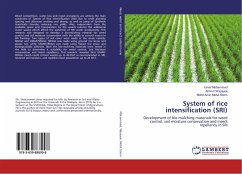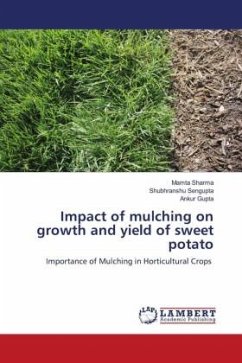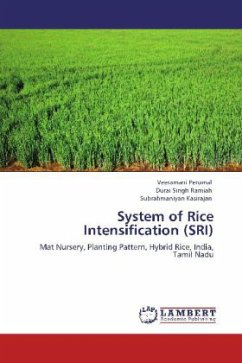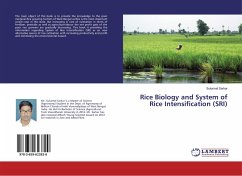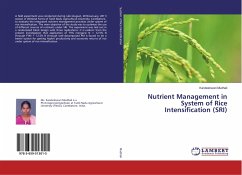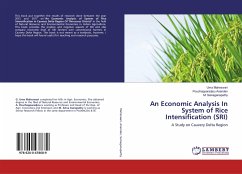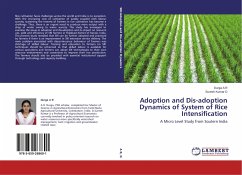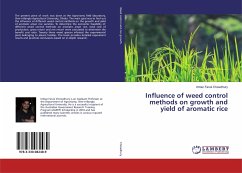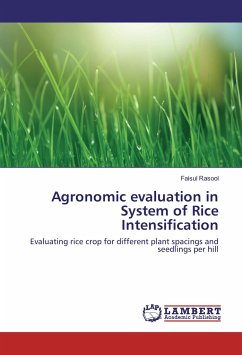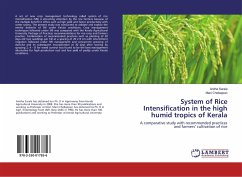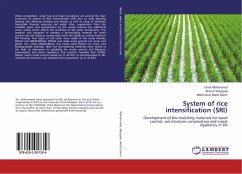
System of rice intensification (SRI)
Development of bio-mulching materials for weed control, soil moisture conservation and insect repellency in SRI
Versandkostenfrei!
Versandfertig in 6-10 Tagen
37,99 €
inkl. MwSt.

PAYBACK Punkte
19 °P sammeln!
Weed competition, water loss and insect prevalency are among the main constrains of System of Rice Intensification (SRI) due to wide planting spacing and alternate wetting and drying, as well as using of Synthetic Insecticide thereby reducing rice yields. Also, evaporation from the available space and transpiration by the weeds reduces the additional water saving which affects the potential of SRI water productivity. This research was designed to develop a bio-mulching material for weed control and soil moisture conservation with the ability to control insects in SRI farming. Two types of soil...
Weed competition, water loss and insect prevalency are among the main constrains of System of Rice Intensification (SRI) due to wide planting spacing and alternate wetting and drying, as well as using of Synthetic Insecticide thereby reducing rice yields. Also, evaporation from the available space and transpiration by the weeds reduces the additional water saving which affects the potential of SRI water productivity. This research was designed to develop a bio-mulching material for weed control and soil moisture conservation with the ability to control insects in SRI farming. Two types of soil cover were made in the study namely; SRImat and UMAR-SRImat. SRImat was made using ground rice straw and plastic net, while UMAR-SRImat was made using flaked rice straw and biodegradable adhesive. Both the bio-mulching materials were tested in the field to determine its suitability for weed control, Soil Moisture conservation and insect repellency. This research revealed that UMAR-SRImat mulch could control weeds up to 40 DAT as recommended in SRI, retained soil moisture, and repelled insect population up to 20 DAT.



